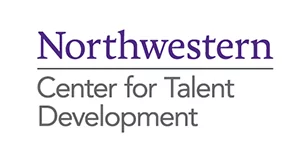Pioneer scholars reflect on working through imposter syndrome to confidence
It’s no secret that the Pioneer Academics research program is challenging. Every year, it accepts

It’s no secret that the Pioneer Academics research program is challenging. Every year, it accepts highly motivated and passionate high school students to meet the challenges of the program and do authentic research with the support of a qualified faculty mentor and Pioneer’s academic system. At first, the rigor and pace of the program can seem overwhelming. Students may have to cope with low confidence or a case of “imposter syndrome”–wondering if they really do belong in such an academically challenging environment. Pioneer’s academic support system is designed to support students through these doubts and push them to accomplish great things. After completing the program, Pioneer scholars are confident in their abilities and ready to move on to new academic challenges.
For Areebah (mathematics, 2020), a Pioneer scholar from Bangladesh, feelings of self-doubt emerged before the program began. When she found out she had been accepted to the Pioneer research program, she had trouble believing the news. “I got the call from Pioneer, and I spent the rest of the week thinking it was a fluke or something. I read the email, and I still thought it was a fluke,” she explains. Her first session with her cohort only increased her imposter syndrome. Areebah admits, “In the first seminar, I remember everyone answering questions left and right and I was just sitting there like ‘What is going on?’” Pioneer’s small cohorts and one-on-one faculty mentorship sessions encourage personal interaction, however, and over time Areebah realized that the other scholars in her cohort were much like her. “What helped me get over [my imposter syndrome] was interacting with my professor and my cohort,” she explains. “We all knew the same things; some of us were more ahead, but we could share a lot. And I could bond with them over math. I was like, okay, I’m here because I love math and I want to research it. It took me some time to realize that, but once I did I could really focus on my research.”
Johnelle (materials science, 2020), a Pioneer scholar from the United States, struggled with similar doubts about her abilities. “Going in, I was super excited. I thought it was going to be the best thing ever. Then I finished the first session, and I kind of had an identity crisis. I was like, I don’t belong here,” she explains. “It was so much, and I was scared that I wasn’t going to understand. In the first session, you’re really tipping your toes into the water. And I was like, the water is really cold. Can I get out?” As for Areebah, it was the cohort model that pushed her to get over her fears and keep trying. “It was very refreshing, because I love to be in an environment where everyone around me wants to challenge themselves. I knew that every one of my classmates was also there to learn and to be excited about learning,” she says. Johnelle says that her experience at Pioneer built her confidence. “My biggest takeaway was to not second-guess myself. Going into the program, I was really scared because I thought I didn’t have enough experience, which is kind of funny looking back because the whole point of Pioneer is to give you experience. It really was a big stepping stone, and now whenever I have an idea that might seem far-fetched, I don’t completely knock it off,” she says. She cites the sense of pride and accomplishment she felt after struggling for hours on a difficult homework assignment and then finally getting the answer.
The heart of the Pioneer Research Program is the research paper, which is a daunting task for many Pioneer scholars. While Pioneer requires students to challenge themselves with original, authentic research, it does not just throw its scholars into the deep end without guidance. Pioneer scholars benefit from the support offered by Pioneer’s academic system, which includes education about research methodology, mentorship by top university professors, and a dedicated online writing center that provides feedback on drafts. Isa (chemistry, 2020), a Pioneer scholar from the United States, shares that while she had doubts at first, completing the research paper is a major source of pride. “Honestly, before the program I never would have thought I could write such a long academic paper. But it happened! I’m so proud of myself. I used a lot of calculations that I’ve never used before, and the methodology was pretty new to me because I gathered raw data from other academic papers,” Isa says. With the support of Pioneer’s academic system, Pioneer scholars are able to produce original research that exceeds their expectations.
It is normal for young scholars to experience feelings of self-doubt and imposter syndrome. Pioneer allows high school students to confront these feelings early in their academic career by providing a rigorous academic program coupled with the support of its academic system. This experience prepares students for university by building their confidence and sense of self-efficacy.
Related News
Online Info Session
Doing research is commonplace. How do you choose the research opportunity that makes a difference?
Join us for a free online info session to learn about Pioneer
At Pioneer Co-Curricular Summit
Check exclusive sharings
From directors of prestigious programs






